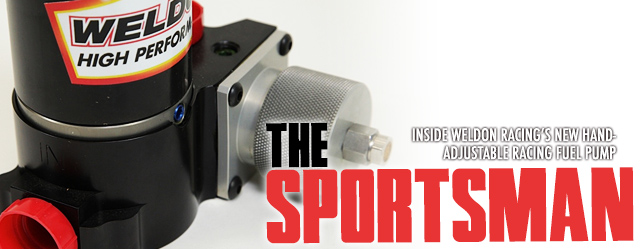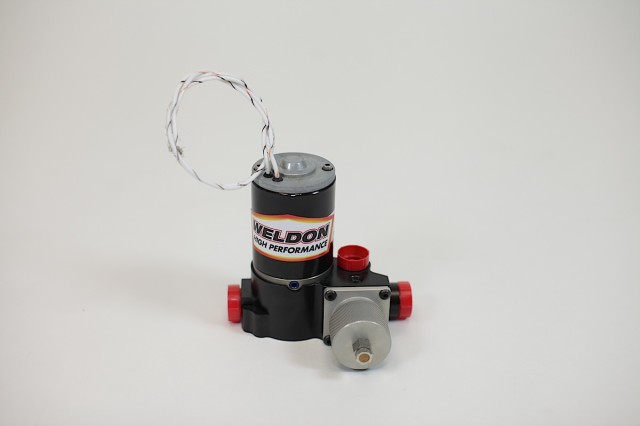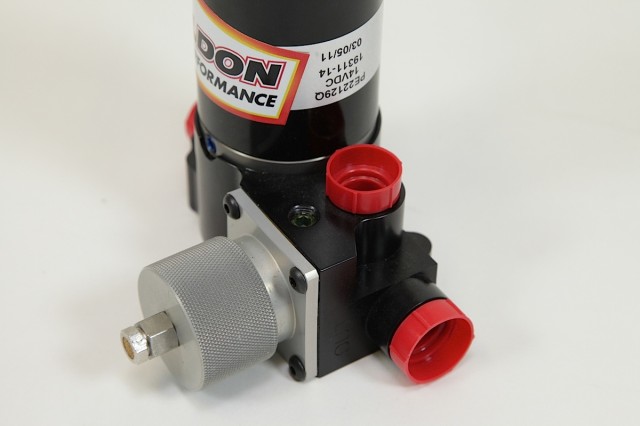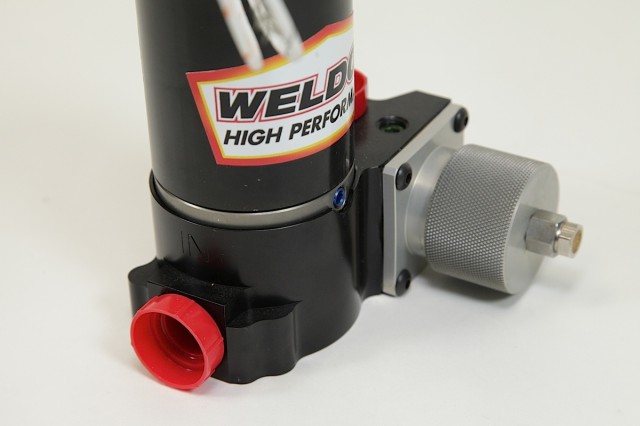Dropping the hammer in the final round of a drag race only to hear 1,200 ponies sputter and expire because of a failed fuel pump is disheartening, at best. However, having a fuel pump give up the ghost on an aircraft would be nothing short of catastrophic. This is precisely why Aviation Administration (FAA) regulations play such a crucial role not only in the fuel pumps Weldon produces for aircraft, but that exacting precision also translates into their auto and marine racing industry pumps.
Weldon History
The Weldon Tool Company began producing carbide end mills made of tool steel in the late 1800s. In the ‘40s, during World War II, the U.S. Army called for precision-made windshield washer pumps to transfer ethylene glycol for the windshield cleaners of their B24 bombers. Weldon was the go-to pump the Army, selected because they had already established themselves as a quality-first company. Today Weldon still manufactures precision-built pumps for the aircraft industry, OE automotive, street and marine performance, and of course, Weldon Racing markets.
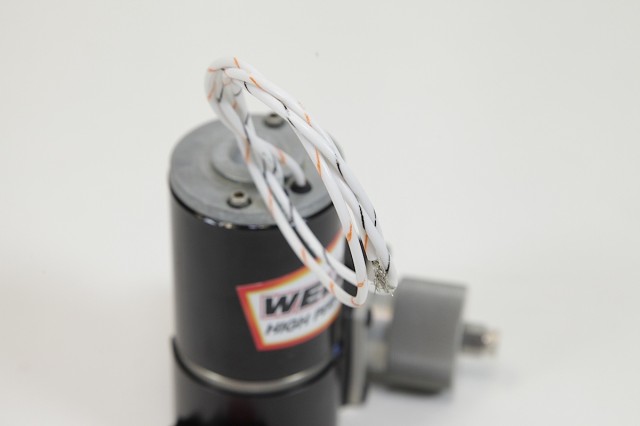
Because the pump’s end frame is also used in military and aviation applications the Teflon wires are mil-spec.
Weldon Racing, not long ago, introduced the Sportsman, their first ever hand-adjustable fuel pump featuring an integral bypassing regulator. The Sportsman is extremely lightweight and was specifically engineered to support race engines, and it comes with the Cleveland, Ohio company’s lifetime warranty. Weldon is the only racing fuel pump manufacturer to use all metallic internal pumping components – plastics or Phenol formaldehyde resins (PF), which are synthetic polymers, are never allowed.
“This fuel pump was designed with the Sportsman racer in mind when supporting up to 1,200 horsepower and when running in the ‘Super’ classes — Super Stock, Super Gas, and Super Comp,” explains Jim Craig, Weldon’s Racing Products Manager. “They’ve also found a home in both the Stock and Competition Eliminator classes. The pump has a very small footprint and only weighs 4.1 pounds. The pump utilizes a bypass diaphragm that has a 1.7 square inch surface area, which allows for smoother fuel pressure during the run and less fluctuations on launch and gear changes.
“The pump can operate on both 12 and 16 volts and only draws 12 amps at 28 psi,” Craig continues. “The Sportsman pump also has a knurled knob for simple pressure adjustment, where no tools are required, and it uses a stainless steel valve seat and Teflon diaphragm for added reliability.”
This innovative new Sportsman fuel pump features AN-10 inlet and outlet ports, and AN-8 bypassing port, and all the ports are chamfered and counter bored for O-ring seals. And, because all the internal pumping components are made entirely of tool steel, including the pump ring, pump rotor, and pump vanes, the Sportsman’s inner working parts will neither fracture nor deteriorate with heat, nor will its flow be impaired as fuel pressure is increased. The end result produces the longest lasting, highest quality, most durable fuel pump available.
“The performance and lightweight aspects of this unit have proven to make for an interesting mix among a select group of NHRA and IHRA racers,” adds Craig.
Exacting Aerospace Standard
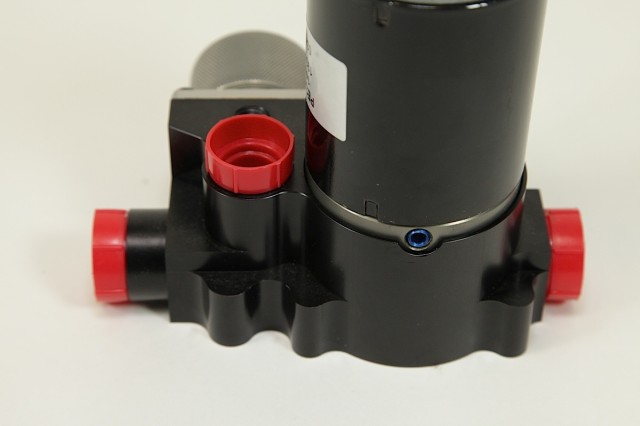
The vertical port on the back of the pump is the return, while the blue plug is for a seal drain, since this motor design is also used in Weldon’s aviation fuel pumps and the over-board drain is a requirement.
Because of Weldon’s distinguished aerospace background and their strict adherence to aerospace standards, every fuel pump they
produce receives its own serial number and a corresponding flow chart. All their pumps are tested with actual fuel, not testing substitutes. They in fact push their test procedures several steps further by testing their fuel pumps, if necessary, to their customers’ special requests. Whether using 89 or 93 octane, diesel, Methanol, Ethanol or spec racing fuel, Weldon certifies their pumps will always meet the task assigned to them. The end result is a revolutionary new product from one of the leaders in racing fuel pumps that will meet — and exceed — the needs of racers across a wide spectrum of performance levels and racing categories.



